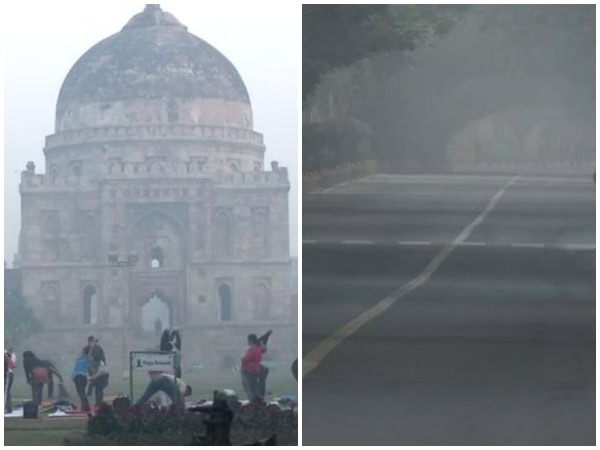New Delhi: Over the past few years, Delhi winters have become synonymous with deadly smog and to the dismay of residents, this year is no different. The overall Air Quality Index (AQI) of Delhi remained in ‘very poor’ category at 326 on Sunday, according to the data compiled by System of Air Quality and Weather Forecasting And Research (SAFAR).
An AQI between 0-50 is considered good, 51-100 is satisfactory, 101-200 moderate, 201-300 poor, 301-400 very poor and 401-500 is marked as severe/hazardous.
At Dhirpur, the AQI was 365 at 9:30 am, while in Mathura Road area it dipped to ‘very poor’ at 361. Furthermore, AQI near Pitampura, Airport, Terminal 3 and Delhi University stood at 345, 277 and 242 respectively.
The India Meteorological Department has predicted that the weather in Delhi will mostly be sunny, with highs and lows reaching 28 degree Celsius and 16 degrees Celsius with haze and mist in the air.
Residents have been advised to restrict outdoor activities, especially those having breathing issues. While light showers brought brief respite, the situation still remains bleak.
Apart from vehicular and industrial pollution practices like residue crop burning and use of biomass, such as cow-dung, wood and coal, also aid air pollution. With a large population relying on these practices, efforts to curb the menace of pollution need stringent measures.
On the contrary, India’s neighbour China is making progress in this regard and has seen significant improvement. In 2013, the Chinese government identified the major pollution regions such as Hebei, Tianjin, and Beijing and set up specific pollution reduction targets and rolled out ten measures for the proper implementations of the regional action plans. Moreover, the government also fixed the quota of a total number of vehicles in its state to 6 million in 2017. From the past couple of years, as much as 4022 hectares of land has been transformed into green spaces. It also has a target of reducing coal consumption by 80 per cent by 2020.
[source_without_link]ANI[/source_without_link]

